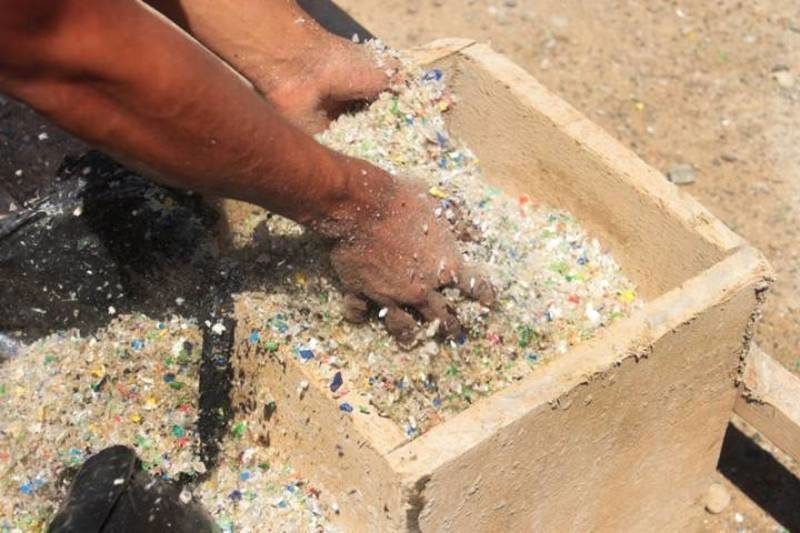Paving roads with plastic bottles rescued from the sea

In the Caribbean city of Utila, in Honduras, dolphins can now dance freely without fearing that plastic will end up in their stomachs.
Recently, the city has successfully implemented a solution to prevent thousands of tonnes of plastic from going into the Atlantic: by turning them into asphalt that can be used to pave the city streets.
"About five million plastic bottles arrive at the island each year, in addition to what the sea brings to the beaches,” Utila mayor Troy Bodden explains. “So we decided to get rid of this plastic by shredding it and using it as a material for the concrete mix to pave our streets.”
Using a mixture of plastic bottles and cement, the innovative solution aims to stop the environmental pollution that threatens not only the impressive dolphin sanctuary, but all the marine species currently living in the second largest reef in the world.
Known for its coral reefs and numerous diving areas, Utila has a lot to lose if the oceans are damaged by pollution.
Inspired by similar projects in India and Canada, Bodden says the final push to implement the project were the viral photos of British photographer Caroline Power which showed floating waste that flows into Atlantic.
Aside from its positive impact on the environment, the mayor notes Utila’s plastic roads are more sustainable, durable and cheaper than conventional roads.
He says 28 percent of the pavement formula comes from shredded plastic, which allows the municipality to save money that would otherwise be spent on cement.

The pilot project was conducted on a 180-meter street located in the center of the island, which the mayor renamed Holland, and cost two million Honduran lempiras ($48,000).
A longer road was later paved following the success of the pilot implementation.
To make the pavement, some 150,000 soft drink bottles were converted into 3,600 kg of shredded plastic, then mixed with cement and sand in a laboratory in the city of San Pedro Sula, in northern Honduras, to test its resistance to weight and weather conditions.
Bodden explains that the formula is certified and has the same consistency as regular asphalt. “We are studying its durability, to implement it in other projects such as paving stones.”
In addition to the innovative solution to plastic waste, Utila has also implemented other projects to fight pollution. These include municipal ordinance that prohibits the use of plastic bags and straws, as well as collective cleaning of beaches and reefs to bring together residents and the island’s diving centers.
Biologist Fernando Argüello says the use of plastics for asphalt highlights the creativity of Hondurans.
“Now the plastic generated on the island is shredded and used as pavement, and it works very well, it doesn't crack or get damaged. With these initiatives, we are preserving the natural resources and the future of our island," he adds. — Glenda Estrada, El Heraldo (Honduras)
This article is being published as part of Earth Beats, an international and collaborative initiative gathering 18 news media outlets from around the world to focus on solutions to waste and pollution.
- Latest
- Trending



























